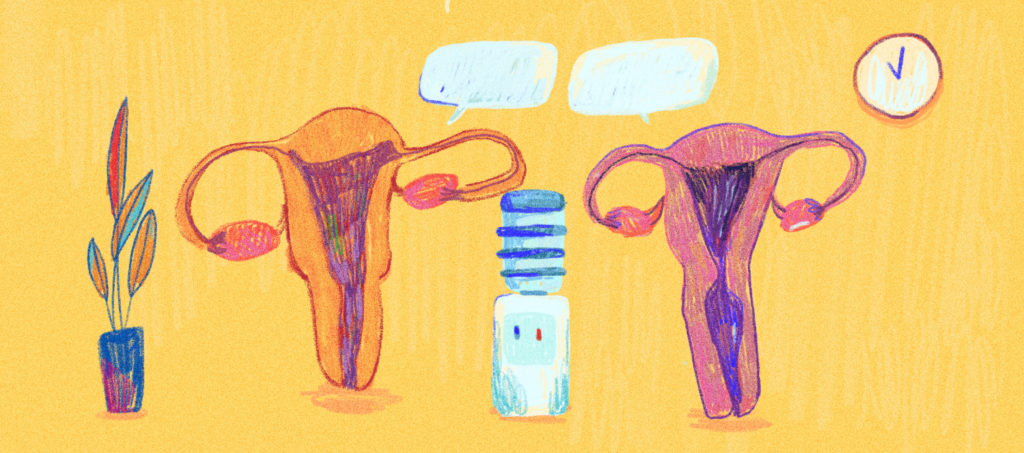
Menopause can turn a simple job into a mammoth task.
Tracy had always considered herself a very pragmatic, controlled and calm person in the workplace. She worked in a high-stress media relations job that required a measured approach to her work and an unflappable way of working with difficult people, especially men in senior positions. Tracy was good at what she did, but as she began to go through menopause in her late 40s, she suddenly found herself struggling with a job that she had done her whole life.
‘I was on my way to a meeting with a client I’d met a thousand times before, and I just started crying. I was beside myself, and I had no idea why. I got it together, but then felt really anxious, and I couldn’t concentrate in the meeting at all. It was like nothing I’d experienced in my career, and I’ve been doing this for a long time.’
Menopause (when monthly menstruation has ceased for 12 months) and perimenopause (the time leading up to menopause) can cause fluctuating hormone levels. Hormones can be difficult things to manage at the best of times, but menopause can cause a range of incredibly uncomfortable symptoms. Some women experience almost no symptoms, but around 80% do experience noticeable changes, and of these, 45% find their symptoms difficult to deal with. They might include hot flushes, night sweats, insomnia, weight gain, mood changes, anxiety, depression, brain fog, and weakened short-term memory.
As Tracy went through menopause, she found ways to cope with the changes and the symptoms. ‘As well as just not being as good at my job as I expected of myself, I was scared of showing weakness and of making it a “gender problem.” But, at the end of the day, that’s exactly what it is. And that’s okay. To fight both sexism and ageism, we need to have more honest conversations about menopause in the workplace.’
It’s a work issue, not just a women’s issue.
Tracy’s experience is not uncommon. Menopause can impact the way you do your work, and when it comes to the workplace, menopause should be treated as an occupational health issue. Thousands of working women in Australia over the age of 50 need their employers to recognise that women of menopausal age may need extra consideration. This is because menopause, through no fault of the individual, can affect how a woman works and her relationships with her manager and colleagues.
Many women will continue to face barriers holding them back in their careers because menopause isn’t spoken about openly and with genuine understanding. But unfortunately, many women believe discussing menopause in the workplace will only increase the prevalence of sexism and ageism in the workplace. That needs to change.
Unions can and will play a role in challenging attitudes to menopause. Your union rep can ensure that employers have procedures in place and offer support to women experiencing issues. They can provide checklists to ensure that your workplace meets the needs of women. But, perhaps, more importantly, raising women’s health issues to employers together will help us all make workplaces more menopause friendly.
There are simple ways to make workplaces menopause friendly.
There’s already a growing push to make workplaces more menopause friendly. But more can be done. As well as helping women be more productive in their workplace, there’s a straightforward reason to push for better organisational policies around menopause: It’s the right thing to do.
There are some simple steps workplaces can take to make improvements. These are things that workers should expect and for which unions can advocate. They include:
- Making desk fans and adjustable air conditioning readily available
- Providing breathable and layered uniforms
- Providing regular breaks
- Introducing quiet rooms
- Providing access to cold water
- Implementing flexible working policies
- Having open and honest discussions about women’s health in the workplace
If you want more information on making your workplace menopause friendly, there are plenty of resources available, including Menopause at Work and Australian OHS Reps. But your union is always more than happy to have a frank conversation about how we can help.







SHARE:
It’s time to talk about menopause in the workplace